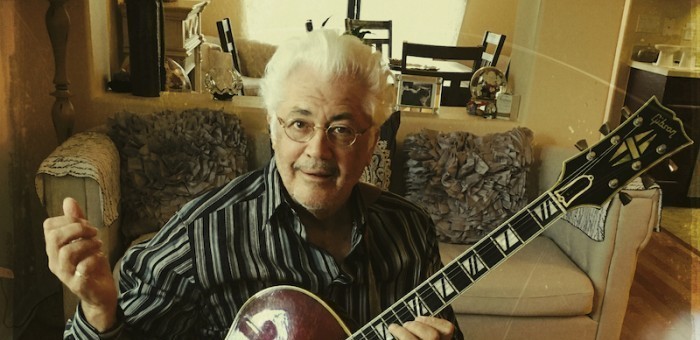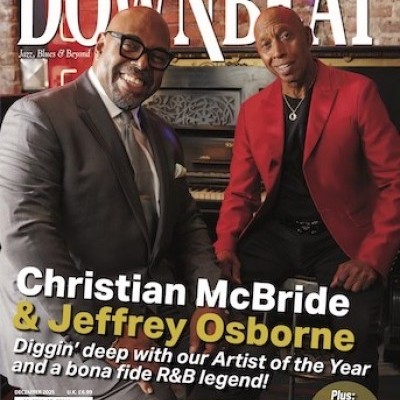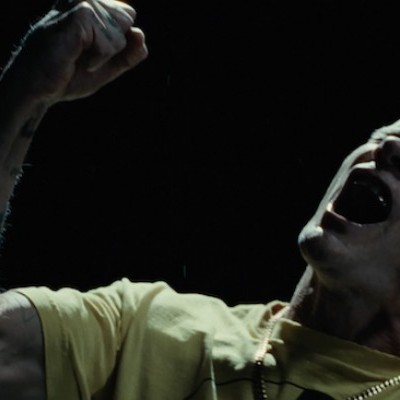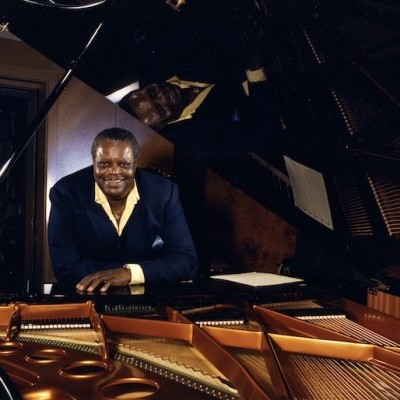Dec 9, 2025 12:28 PM
In Memoriam: Gordon Goodwin, 1954–2025
Gordon Goodwin, an award-winning saxophonist, pianist, bandleader, composer and arranger, died Dec. 8 in Los Angeles.…

Larry Coryell (1943–2017)
(Photo: Tracey Coryell)Acclaimed jazz guitarist Larry Coryell died suddenly in New York City on Feb. 19. He was 73.
His wife, the singer-songwriter Tracey Coryell, posted a heartfelt note along with a press release on Facebook.
Larry Coryell, who remained active as a recording and touring artist right up until his passing, was the subject of a recent profile in the February issue of DownBeat.
Below are edited excerpts from the press release that Tracey Coryell posted online:
Legendary guitarist Larry Coryell died on Sunday, Feb. 19, in New York City. Coryell, 73, passed away in his sleep at his hotel from natural causes. His last two shows were on Feb. 17 and 18 at the Iridium in New York City.
As one of the pioneers of jazz-rock—indeed, the pioneer in the ears of many (he’s often been called the Godfather of Fusion)—Coryell [brought a unique] sensibility to jazz electric guitar playing in the 1960s, with his hard-edged, cutting tone, as well as phrasing and note-bending that owed as much to blues, rock and even country as it did to bop influences.
Yet as a true eclectic, armed with a brilliant technique, he was comfortable in almost every style, covering almost every base from the most decibel-heavy, distortion-laden electric work to the most delicate, soothing, intricate lines on acoustic guitar.
Born in Galveston, Texas, on April 2, 1943, Coryell grew up in the Seattle, Washington, area where his mother introduced him to the piano at the age of 4. He switched to guitar and played rock music while in his teens. He didn’t consider himself good enough to pursue a music career and studied journalism at the University of Washington while simultaneously taking private guitar lessons.
By 1965 he had relocated to New York City and began taking classical guitar lessons, which would figure prominently in the later stages of his career. Although he cited Chet Atkins and Chuck Berry as early influences, he also took cues from jazz artists such as John Coltrane and Wes Montgomery.
He was also inspired by The Beatles, The Byrds and Bob Dylan and worked diligently to meld both rock and jazz stylings into his technique. This was reflected on his debut recording performance on drummer Chico Hamilton’s album The Dealer, on which he sounded like Chuck Berry at times and delivered a “fat” tone.
In 1966 he formed the psychedelic band The Free Spirits, in which he sang, played guitar and sitar, and did most of the composing. Although conceptually the band’s music conformed to the psychedelic formula with titles like “Bad News Cat” and “I’m Gonna Be Free,” it foreshadowed jazz-rock fusion with more complex soloing by Coryell and saxophonist/flutist Jim Pepper.
After performing on albums by vibraphonist Gary Burton and flutist Herbie Mann and gigging with the likes of Jack Bruce and others, Coryell established his multifarious musical voice as a leader. He released two solo albums (1968’s Lady Coryell and 1969’s Coryell) that mixed jazz, classical and rock ingredients.
In late 1969 he recorded the landmark album Spaces. It was a guitar blowout that included John McLaughlin, who was also sitting on the fence between rock and jazz at the time. Many aficionados consider the album—which featured innovative acoustic bass work by Miroslav Vitous and powerful drumming by Billy Cobham—to be deeply influential to the emerging fusion jazz movement of the 1970s.
Coryell’s career as a significant guitar force in the late ’60s and early ’70s continued to take flight in an era when guitarists such as Eric Clapton, Jeff Beck, Carlos Santana and many other iconic names also blossomed. Coryell’s varied musical expressions took him on a diverse journey, and though he did not achieve the level of fame and commercial success that some of his contemporaries enjoyed, he was still able to make his timeless mark in music through his highly acclaimed solo work.
He released more than 60 solo albums, recorded with the powerhouse fusion band The Eleventh House and collaborated with a host of jazz greats, including Burton, Miles Davis, Alphonse Mouzon, Ron Carter, Chet Baker and many other artists in a variety of styles.
Coryell toured internationally right up until his passing; he had planned an extensive 2017 summer tour with a reformed The Eleventh House.
His most recent album is Barefoot Man: Sanpaku, released on Oct. 14, 2016, on Cleopatra Records, and he had completed a new Eleventh House album, Seven Secrets, which will be released by the Savoy Jazz label on June 2.
Coryell’s final original works included operas based on Leo Tolstoy’s novels War and Peace and Anna Karenina and James Joyce’s Ulysses.
He is survived by his wife, Tracey; his daughter Annie; his sons Murali and Julian; his daughter Allegra; and six grandchildren.
A memorial service is planned for Friday, Feb. 24, at 7 p.m. at the Soka Gakkai International (S.G.I) USA Buddhist Center in New York City (7 E. 15th St.). DB

Goodwin was one of the most acclaimed, successful and influential jazz musicians of his generation.
Dec 9, 2025 12:28 PM
Gordon Goodwin, an award-winning saxophonist, pianist, bandleader, composer and arranger, died Dec. 8 in Los Angeles.…

Nov 13, 2025 10:00 AM
For results of DownBeat’s 90th Annual Readers Poll, complete with feature articles from our December 2025 issue,…

Flea has returned to his first instrument — the trumpet — and assembled a dream band of jazz musicians to record a new album.
Dec 2, 2025 2:01 AM
After a nearly five-decade career as one of his generation’s defining rock bassists, Flea has returned to his first…

“It’s a pleasure and an honor to interpret the music of Oscar Peterson in his native city,” said Jim Doxas in regard to celebrating the Canadian legend. “He traveled the world, but never forgot Montreal.”
Nov 18, 2025 12:16 PM
In the pantheon of jazz luminaries, few shine as brightly, or swing as hard, as Oscar Peterson. A century ago, a…

Dec 11, 2025 11:00 AM
DownBeat presents a complete list of the 4-, 4½- and 5-star albums from 2025 in one convenient package. It’s a great…